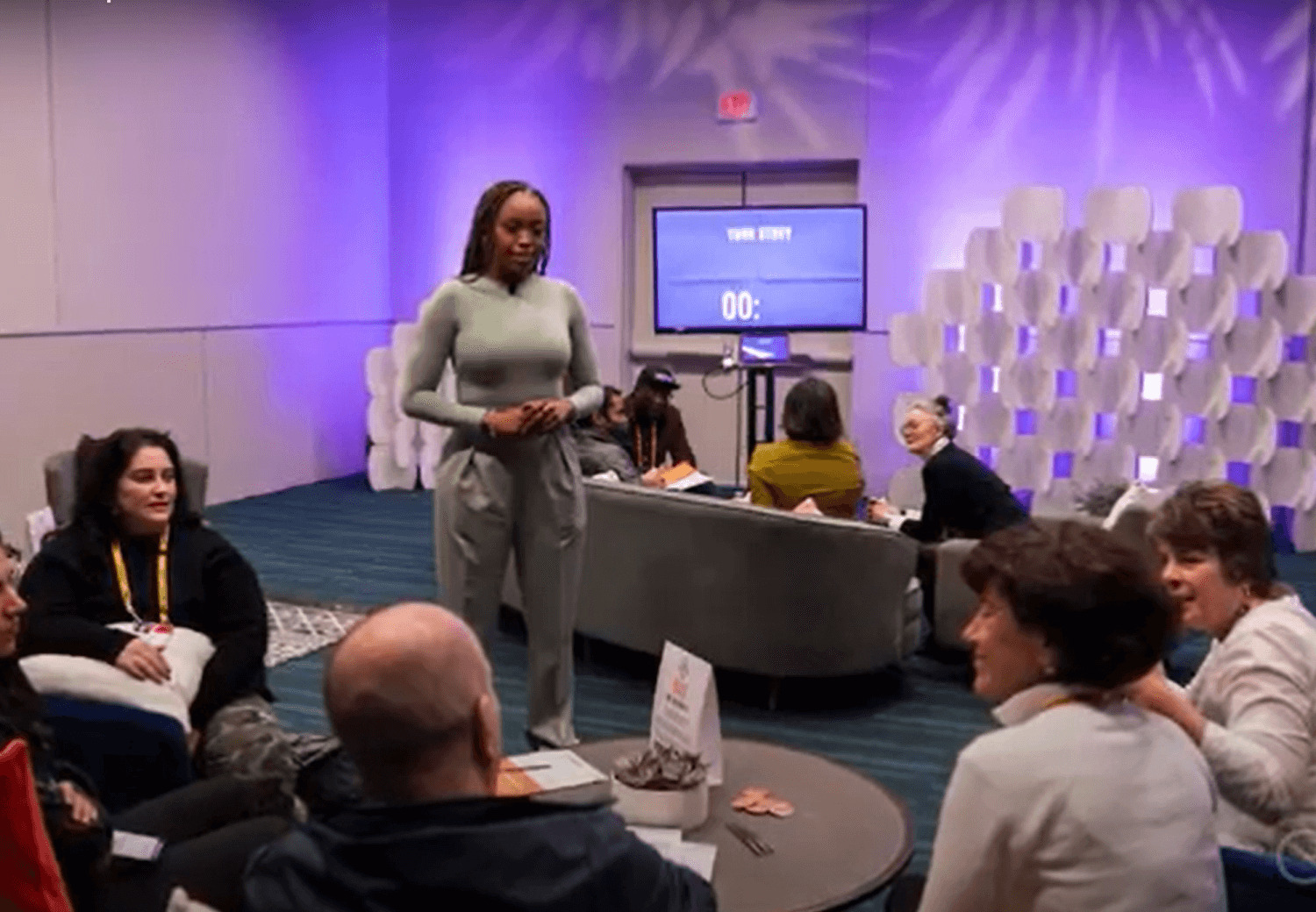And so, when you think about that, and this actually happens way more often than I think people would think, is that we don’t create space for people to share and tell us, either their identities, their intersections, how they communicate, how they work well, what they need. We either don’t create the space, we don’t ask, and it doesn’t come up. We just make assumptions, or we expect everyone to shift and adapt to the leader, to the senior person. I think that that’s how most people see it, right? And so one of the things that we encourage folks to do is, when you include your intersections and your identities, it’s a signal to others that they can as well.
So, something as simple as that, I’ll talk and I’ll say, “As a Black woman, I think x.’ So that opens up to say, “Oh, hey, well then I can say, as an indigenous man, as a queer woman,” whatever your identities are of giving, like, ah, that’s my perspective, that’s my lens, and that’s where I’m speaking from, and me sharing that is important because I want you to know that that plays into and that is feeding into my perspective of what I’m sharing, but also just, you know, like having conversations.
I think one of the things we also talked about with leaders, is people will take time off, vacation time off, whatever, and how often do we ask, or are interested in what they’re doing? Now, I think there’s a way to ask that. This is what I typically do, say, one, I also tell my team, don’t ask me for time off, you’re an adult, you say, “I’m taking this time off and things are covered. This is what’s going on, and let us know how things will continue to run. But hey, I’m taking time off, great. If you’re doing something interesting or fun, I’d love to see pictures or discuss when we get back. Otherwise, enjoy your time off. Let us know if you need anything.”
So, I would be like, “Oh, well actually, I’m doing this with my family. It’s a cultural event. You know, we’re celebrating this.” “Awesome! We’d love to learn more, share pictures,” or “Unfortunately, we had a death in the family, so I need to go to a funeral.” But then I can react accordingly and we can send flowers and pay our respects on behalf of the organization.
So again, it’s just interesting how subtle things in our language and subtle changes in our interactions can have such a significant impact, and leaders, I just encourage leaders to think about that and to be intentional and thoughtful.





